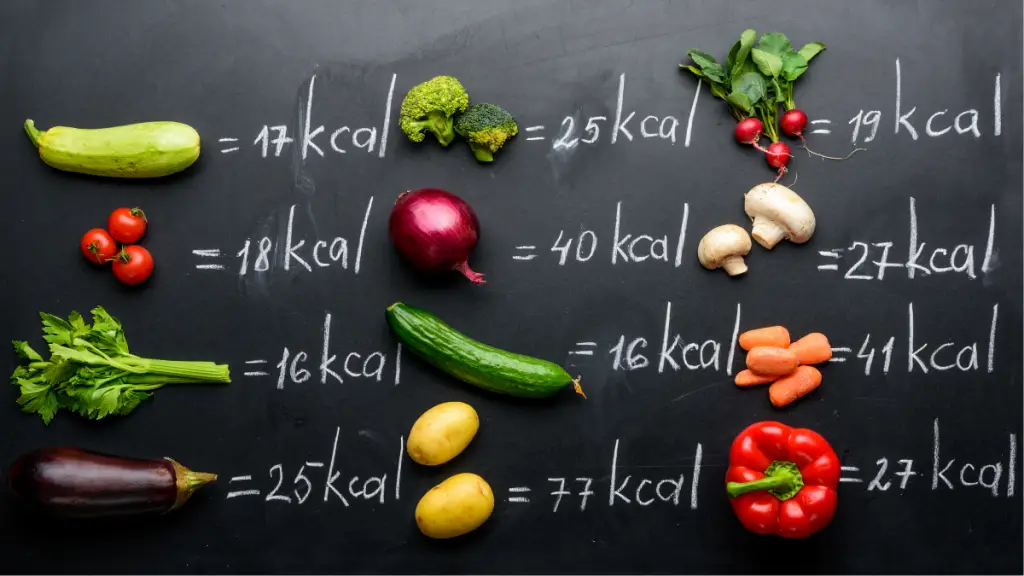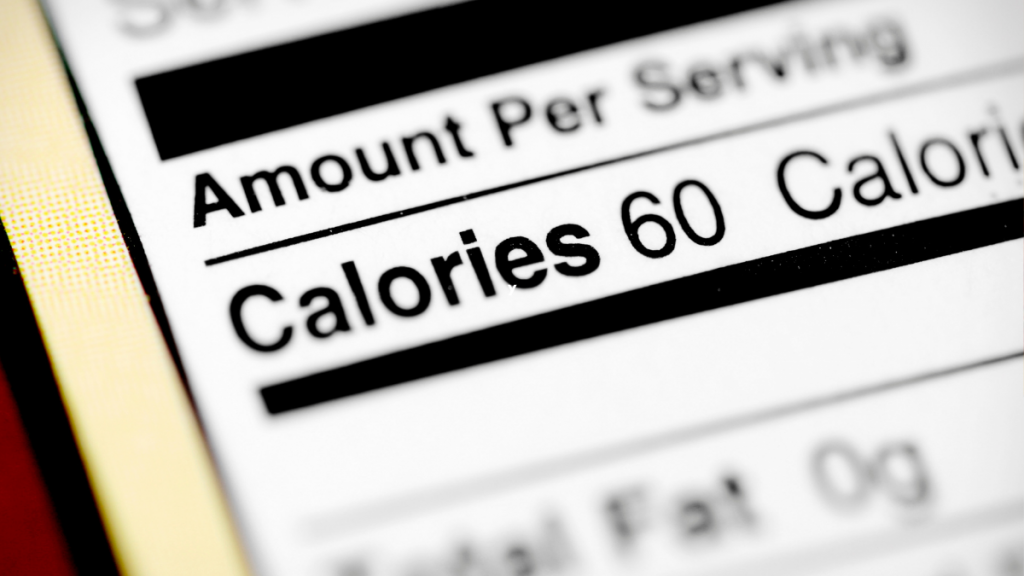
Net calories are a concept that plays a crucial role in understanding nutrition and managing our intake for better health. Calories are a measure of energy, and the calories listed on food labels are calculated based on the amounts of carbohydrates, fats, and proteins in the food. Carbohydrates and proteins provide 4 calories per gram, while fats provide 9 calories per gram. Sugar, fiber, and alcohol also contribute to the calorie count but have different effects on the body. Understanding net calories helps us make informed dietary choices and balance our intake of nutrients to meet our health and fitness goals.
Key Takeaways:
- Net calories take into account the energy we consume versus the energy we expend.
- Net calories provide a more accurate picture of our calorie balance.
- Understanding net calories helps in making informed dietary choices.
- Net calorie calculation considers the calories from macronutrients and other factors.
- Net calorie definition involves accounting for the total calories consumed minus the calories expended.
The Importance of Net Calories for Weight Loss

Net calories play a significant role in weight loss. To achieve weight loss, it is essential to create a calorie deficit, which means consuming fewer calories than we burn. Net calorie intake, which calculates the total calories consumed minus the calories expended through physical activity and bodily functions, allows us to track our intake accurately and promote weight loss.
Unlike gross calories, which only consider the total calories consumed, net calories take into account the calories burned as well. This distinction is crucial because it provides a more accurate picture of our calorie balance. By understanding our net calorie intake, we can make informed choices and ensure that we are in a calorie deficit, which is necessary for effective weight loss.
Monitoring net calories enables us to gauge the energy balance and adjust our eating habits accordingly. It helps us identify areas where we can cut back on calorie-dense foods and make healthier choices. By maintaining a consistent net calorie deficit, we can gradually shed excess weight in a sustainable and healthy manner.
It’s important to note that weight loss should be approached with a focus on overall health and well-being. While net calories are an essential factor, it’s equally important to ensure a balanced diet that includes all the necessary nutrients for our body’s optimal functioning.
“Understanding and tracking net calories allows us to create a calorie deficit, which is key for weight loss.”
Net Calories vs. Gross Calories
Net calories and gross calories are two different ways of considering our calorie intake. Gross calories refer to the total number of calories consumed, while net calories take into account the calories burned through physical activity and bodily functions.
For example, let’s say you consume a meal that has 500 calories. If you consider only the gross calories, then your intake is 500 calories. However, when you factor in the calories burned through activities like walking or cycling, along with the calories expended by your body for digestion and other bodily functions, the net calorie intake may be lower, let’s say 400 calories.
By focusing on net calories, we can have a more accurate understanding of our energy balance and make informed choices about our diet and exercise regimen. It allows us to ensure that we are in a calorie deficit, which is essential for weight loss.
Tracking net calories can be done through various methods, such as using smartphone apps, keeping a food diary, or consulting a nutritionist. These tools and resources help us gain awareness of our eating habits and make adjustments as needed to achieve our weight loss goals.

Visualization of the concept of net calories for weight loss. Image Source: seowriting.ai
Understanding NEAT and Its Role in Metabolism
NEAT, which stands for Non-Exercise Activity Thermogenesis, encompasses the calories our body expends through non-structured activities in our daily life. These activities may include walking around, doing household chores, fidgeting, and even standing instead of sitting. NEAT plays a critical role in our overall metabolism and can vary significantly among individuals.
Increasing our NEAT levels can bring about numerous benefits, including preventing weight gain, promoting weight loss, and improving metabolic health. Moreover, NEAT activity enhances insulin sensitivity, which is crucial for managing blood sugar levels and reducing the risk of chronic conditions such as diabetes. The great news is that increasing NEAT doesn’t require major interventions. Instead, we can achieve it through simple lifestyle changes that seamlessly integrate into our routine.
One of the most accessible ways to boost NEAT is by incorporating regular walks into our day. Instead of driving or taking public transportation for short distances, we can choose to walk. Additionally, using a standing desk can help increase NEAT by encouraging movement and avoiding prolonged periods of sitting. Another simple change is taking the stairs instead of the elevator whenever possible. These small adjustments can collectively make a significant impact on our NEAT levels, contributing to improved health and metabolism.
Increase Your NEAT Levels with These Lifestyle Changes:
- Opt for regular walks for short distances instead of driving or using public transportation
- Use a standing desk to encourage movement and avoid long periods of sitting
- Take the stairs instead of the elevator whenever possible
Increasing NEAT through simple lifestyle changes, such as incorporating regular walks and using a standing desk, can have a profound impact on our overall health and metabolism.
The Role of Nutritional Labeling and Testing
In today’s health-conscious society, nutritional labeling plays a crucial role in helping individuals make informed choices about the food products they consume. These labels provide valuable information about the nutrient content of a food item, allowing consumers to understand the impact on their overall diet and well-being. The Food and Drug Administration (FDA) requires most beverages and packaged foods to include nutritional labels.
Nutritional testing is essential to ensure the accuracy and reliability of these labels. Through rigorous testing processes, food manufacturers can verify the values displayed on the labels match the actual nutritional composition of the product. This ensures transparency and helps consumers trust the information provided.
The FDA sets regulations that require specific components to be included on nutritional labels. Some of these components include serving size, calories, total fat, carbohydrates, proteins, sugars, and other essential nutrients. These regulations aim to provide consumers with standardized information that allows for easy comparison between different products and aids in making informed purchasing decisions.
Nutritional labeling goes beyond mere compliance with FDA regulations; it serves as an essential tool for building trust with consumers. By clearly displaying accurate information about the nutrient content, food companies can improve brand loyalty and establish themselves as transparent and reliable sources. Additionally, these labels serve as effective marketing tools, as they enhance the perceived value of the product and help consumers make choices aligned with their dietary goals.
Enhancing Consumer Knowledge and Empowering Choices
Nutritional labeling empowers consumers by giving them the knowledge they need to make dietary decisions that align with their health goals. By providing information about the caloric and nutrient content, allergens, and potential additives, these labels enable individuals to choose healthier options and manage their dietary needs more effectively.
Furthermore, nutritional labeling can also play a role in addressing public health concerns. With increasing health issues such as obesity and chronic diseases, proper labeling helps individuals monitor their nutrient intake, control portion sizes, and make healthier choices overall. It provides a visual representation of the nutritional value of the food product, allowing individuals to maintain a balanced diet and a healthier lifestyle.
By adhering to FDA regulations and investing in accurate nutritional testing, food manufacturers can contribute to the well-being of consumers. The combination of informative labels and trustworthy testing processes ensures that individuals can make knowledgeable choices about the foods they consume, leading to a healthier and more conscious society.

| Nutrient | Amount per Serving | % Daily Value |
|---|---|---|
| Calories | 150 | 8% |
| Total Fat | 5g | 8% |
| Saturated Fat | 2g | 10% |
| Trans Fat | 0g | – |
| Cholesterol | 10mg | 3% |
| Sodium | 200mg | 8% |
| Total Carbohydrate | 22g | 7% |
| Dietary Fiber | 2g | 8% |
| Total Sugars | 5g | – |
| Protein | 4g | 8% |
| Vitamin D | 0mcg | 1% |
| Calcium | 30mg | 2% |
| Potassium | 150mg | 4% |
In Summary
Understanding net calories, NEAT, and the importance of nutritional labeling is vital for making informed decisions about our dietary choices and overall health.
Net calories consider the energy we consume and expend, providing a more accurate picture of our calorie balance. By understanding net calories, we can make adjustments to our intake to better manage our health and achieve our desired outcomes.
NEAT, or Non-Exercise Activity Thermogenesis, encompasses the calories our body burns during daily activities like walking, cleaning, and fidgeting. Increasing NEAT levels can have substantial benefits for weight loss, weight management, and overall metabolic health. Simple lifestyle changes, such as incorporating more movement throughout our day, can help increase NEAT and contribute to a healthier lifestyle.
Nutritional labeling is essential for providing accurate information about the nutrient content of food products. Following FDA regulations, nutritional labels offer transparency and enable consumers to make informed choices when it comes to their dietary needs.
By incorporating the understanding of net calories, NEAT, and nutritional labeling into our daily lives, we can achieve better health outcomes and make conscious decisions about what we consume.
FAQ
What are net calories?
Net calories are a measure of the energy we consume versus the energy we expend through physical activity and bodily functions.
How do you calculate net calories?
Net calories are calculated by subtracting the calories expended through physical activity and bodily functions from the total calories consumed.
Why is understanding net calories important for weight loss?
Understanding net calories is important for weight loss because it helps us create a calorie deficit, which is necessary to promote weight loss.
What is the difference between net calories and gross calories?
Net calories take into account the calories consumed minus the calories burned, while gross calories only consider the total calories consumed without accounting for the calories burned.
What is NEAT activity?
NEAT activity stands for Non-Exercise Activity Thermogenesis and refers to the calories we burn doing non-structured activities of daily life, such as walking and fidgeting.
What are the benefits of increasing NEAT?
Increasing NEAT levels can help prevent weight gain, promote weight loss, improve metabolic health, and enhance insulin sensitivity.
What is nutritional labeling?
Nutritional labeling refers to the information provided on food labels about the nutrient content of a food product. It helps consumers make informed choices.
Why is nutritional testing important?
Nutritional testing is important to ensure the accuracy of nutritional labels and provide consumers with reliable information about the nutrient content of food products.
Source Links
- https://macrosinc.net/what-is-neat-exercise/
- https://fsns.com/nutritional-labeling-testing-decoding-a-nutritional-label/
- https://lutfisfriedfish.net/decoding-food-labels-understanding-the-composition-of-calories
Hey there, I’m Luke, and I’ve been immersed in the fitness world since 2007. From gym floors to running my own personal training business, I’ve seen it all. My journey led me to study Sports Science at university, where I deepened my understanding of the science behind exercise.
One thing that truly lights my fire? High-Intensity Interval Training (HIIT). It’s not just a workout; it’s a game-changer. I’ve used HIIT to help countless men and women shed weight and transform their lives for the better.
Through my personal training business, I’ve witnessed the incredible impact of HIIT on both physical and mental well-being. It’s not just about getting fitter; it’s about feeling stronger, more confident, and more resilient.
Join me on this journey to a healthier, happier you. Let’s crush those goals together!